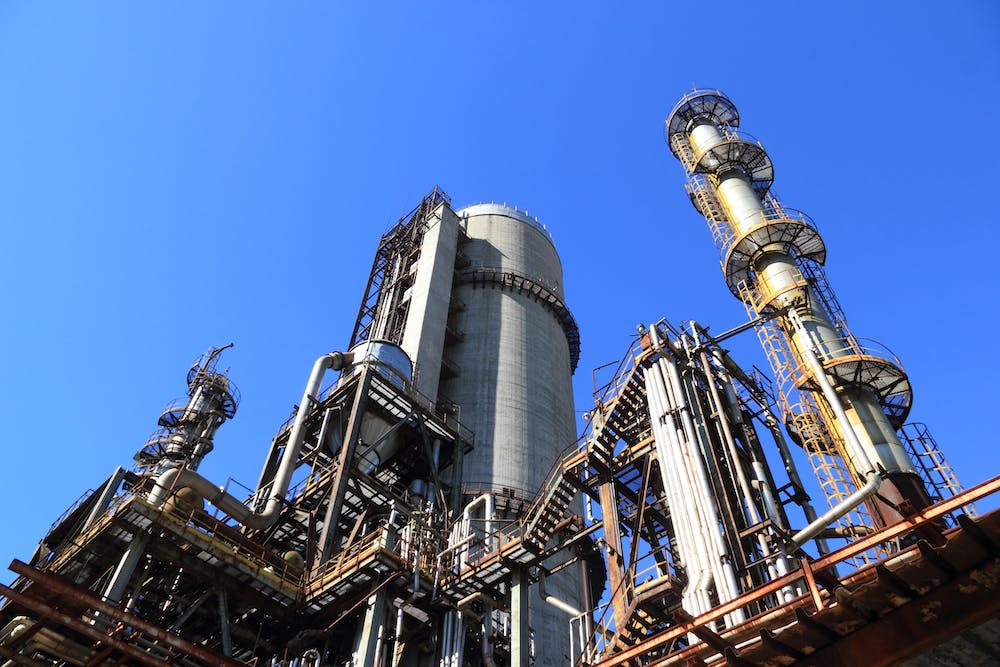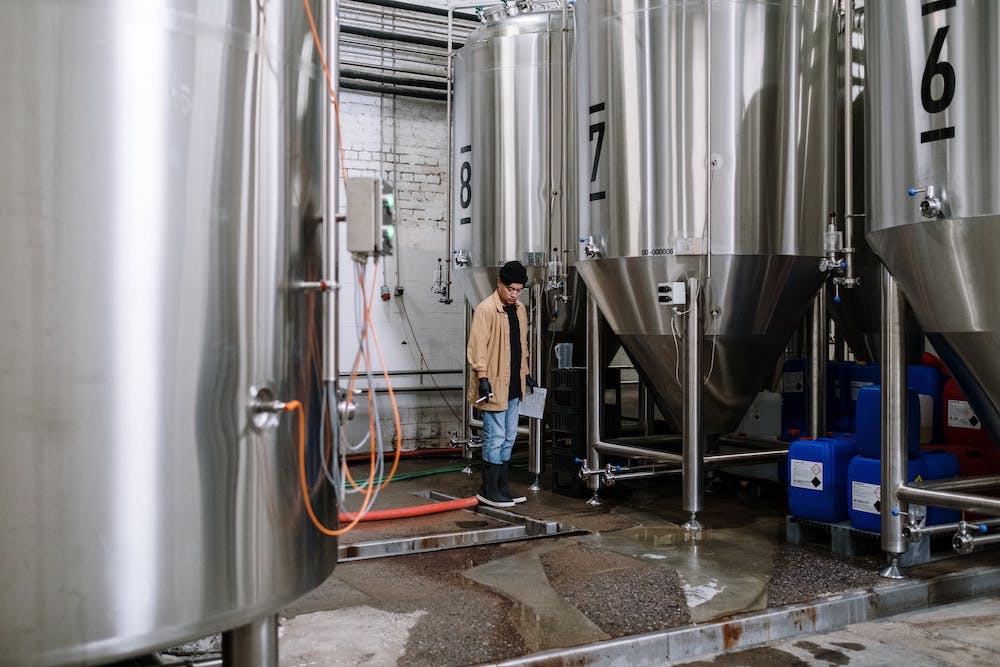- Published 5 Mar 2024
- Last Modified 5 Mar 2024
- 5 min
Water Conservation in Industrial Processes
Explore how using water-efficient technologies like flow meters and pressure sensors revolutionises industrial processes in our latest blog.

Water efficiency is a cornerstone for sustainable industrial operations, particularly from a broader perspective. Industries such as manufacturing consume substantial amounts of water in their daily operations, highlighting the importance of efficient water use at a macro level. This approach is not only environmentally responsible but also essential for the long-term viability of these industries.
Illustrating this commitment is Singapore’s innovative NEWater initiative, which aims to transform treated sewage into ultra-clean water through a rigorous three-step purification process. This recycled water is then used for industrial purposes and cooling processes in semiconductor fabrication plants and commercial buildings. NEWater has achieved notable conservation of 55,013 cubic metres of water, demonstrating the practicality and necessity of adopting advanced water conservation methods.
This article will shed light on various precision instruments companies in manufacturing and electronics industries can implement in their processes to aid in effective water management.

The Imperative for Water Efficiency in Industrial Settings
As Singapore's electronics and engineering industries continue to expand, the demand for ultra-pure water in processes like fabrication, washing, and cooling has surged. This growth underscores the urgent need for more efficient water management strategies. The requirement isn't just about meeting the increasing demand; it's about doing so in a way that aligns with sustainable practices, ensuring that the water-intensive nature of these industries does not lead to wastefulness or environmental strain.
On a broader scale, the benefits of efficient water usage extend beyond just meeting industrial needs. Implementing water-efficient practices can result in significant cost savings for industries, reducing operational expenses related to water procurement and treatment. Additionally, these practices contribute to environmental conservation, minimising the ecological footprint of industrial activities. Thus, the push for water efficiency in Singapore's manufacturing and engineering industries is also an integral part of a larger, environmentally-conscious business strategy.
Technologies and Practices for Industrial Water Conservation
Adopting key technologies and practices is essential to optimise water conservation in industrial processes. Instruments like flow meters, pressure sensors, and level sensors play critical roles in monitoring, managing, and optimising water usage, thereby supporting the company’s sustainability goals.
Water Flow Meters
Water flow meters are used in industrial settings for their ability to provide precise measurements of water usage. This crucial data can then be compared and analysed to identify areas where water use can be reduced without compromising operational efficiency. By monitoring flow rates in real-time, companies can detect leaks, understand consumption patterns, and implement changes to conserve water.
Pressure Sensors
Pressure sensors contribute significantly to efficient water management by ensuring systems operate within optimal pressure ranges. This not only prevents leaks and unnecessary water loss but also enhances system reliability and longevity. The use of pressure sensors in water treatment processes underscores their importance in maintaining system integrity and promoting water conservation.
Water Level Sensors
Level sensors offer another dimension of control by monitoring water levels in tanks and reservoirs to prevent overflows and underutilisation. Their precise readings from an effective water level probe enable industries to optimise water storage and usage, ensuring that resources are used judiciously and water wastage is minimised.
Implementing Water Conservation Strategies in Industries

To successfully implement water-saving technologies in industries, a comprehensive evaluation of existing water use is essential. This initial analysis is crucial for pinpointing areas where efficiency can be enhanced, setting the stage for more effective and sustainable water management practices. The following strategies can accelerate industry processes towards achieving this goal:
- Regular Calibration and Maintenance: Ensuring that instruments such as flow meters and pressure sensors are regularly calibrated and maintained and keep them functioning accurately, thereby ensuring optimal performance and reliability in water conservation efforts.
- Integration with Automated Systems: By integrating these devices with automated systems and IoT technologies, industries can benefit from real-time data collection and analysis. This leads to more informed and efficient water management decisions.
- Data Analysis for Process Improvement: Analysing water usage patterns and identifying potential wastage areas will enable companies to implement targeted process improvements for enhanced water conservation.
- Training and Awareness: Educating staff about the importance and proper use of these instruments will increase their awareness and understanding of how these tools contribute to water conservation and foster a culture of sustainability within the company.
RS Solutions for Water Conservation in Industries
Water conservation is a critical aspect of sustainable industrial operations, and the role of innovative technologies cannot be overstated. RS offers a comprehensive range of flow meters, pressure sensors, and level sensors designed to meet the diverse needs of industrial water management. By leveraging these solutions, companies can take a significant step towards more sustainable operations.
Choosing RS for water management solutions gives clients the assurance of quality, reliability, and technological advancement. Our solutions are tailored to help them meet their water conservation goals and improve overall operational efficiency.
Explore RS Singapore’s range of water management solutions to transform your water conservation practices and contribute to more sustainable industrial processes.
Popular Sensor Brands for Water Management
SICK
SICK stands at the forefront of sensor-based solutions, including precision pressure sensors, for industrial applications, excelling in factory, logistics, and process automation. Renowned for sensor intelligence and sustainable technology, SICK enhances process efficiency and safety and is firmly committed to environmental protection and innovation.
Honeywell
Honeywell is committed to developing sustainable solutions that enhance safety, efficiency and innovation across diverse sectors, including aerospace, building technologies, and performance materials. Honeywell’s precision instruments push companies forward in water conservation for more efficient operations.
Siemens
A leading engineering and technology company, Siemens focuses on advancing industry, infrastructure, transport, and healthcare. Committed to engineering resource-efficient solutions, Siemens innovates for more sustainable and efficient systems through various manufactured sensors, improving efficiency in water management across industries globally.
Related links
- Trumeter Vista Touch Series Industrial Flow Meters Flow Meter
- Atrato Pulsite Solo Rate & Totaliser Series LCD Display with...
- RCCBs
- Product Plus: improving efficiency and safety
- Inverter Drives
- Trumeter Digital Panel Multi-Function Meter for Flow Speed, 68mm x 68mm
- Descalers
- Your Smart Choice for Energy Saving